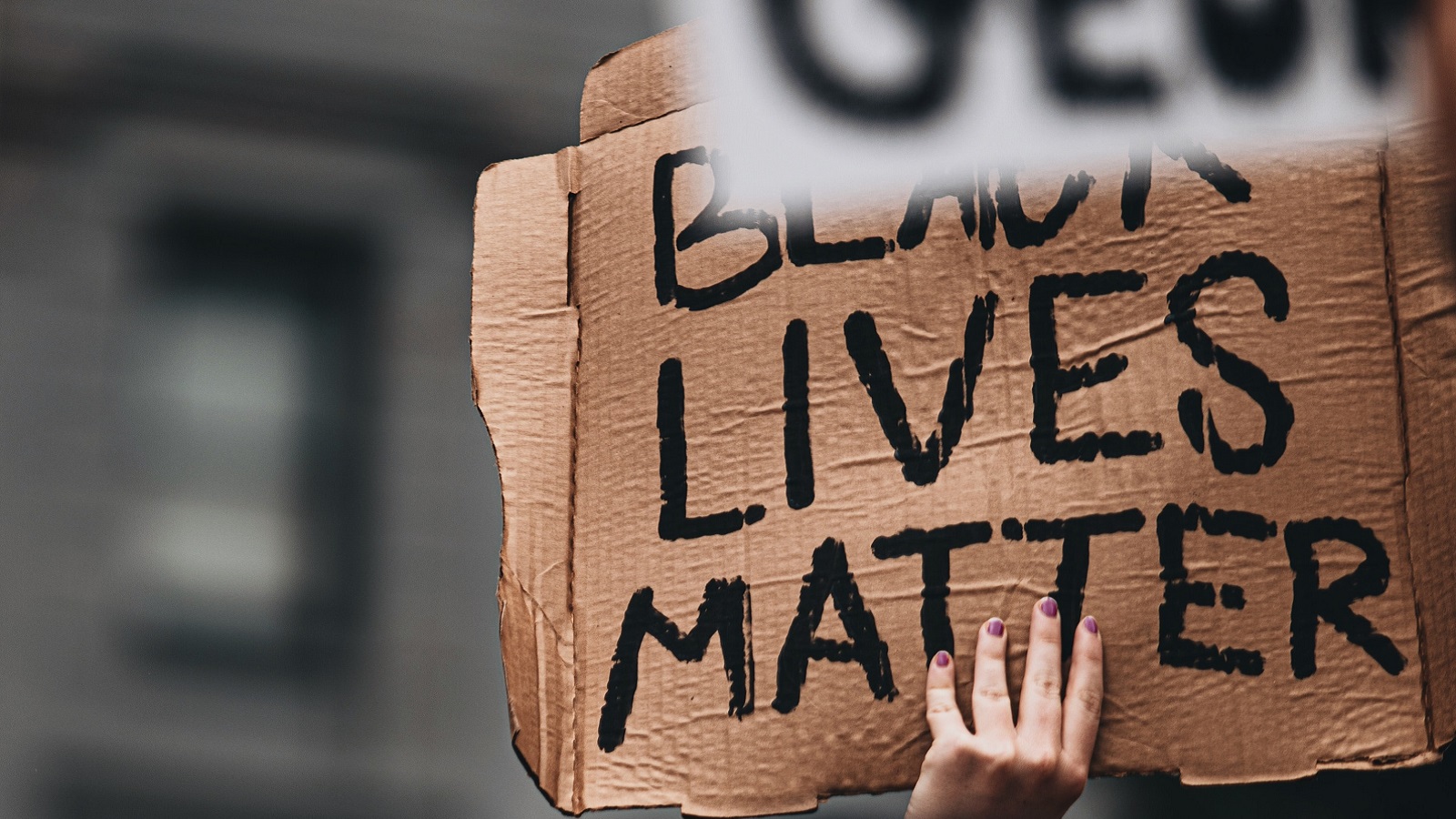Many of my teachers and fellow students feel that to be good healthcare providers, we must separate ourselves from our political opinions and the issues outside the walls of the hospital. That impulse can be helpful. We don’t want to mistreat our patients because they hold different opinions from us or see the world in a different way. At the same time, I think it limits the degree to which we can fully understand and address the problems our patients face. It is difficult to understand the injuries caused by violence or the illnesses caused by chronic stress and trauma if we do not explore the causes of that violence or the roots of that stress. While this distance from politics is well-intentioned, many healthcare providers are hesitant to get involved in social upheaval, and that hesitation has been clearly illustrated in the current Black Lives Matter protests in response to the murder of George Floyd.
Often, involvement in politics is not contradictory to our mission, but synergistic with it, giving us the chance to advocate for our patients and call for preventive measures. When we look at Black Lives Matter and other protests against police violence, it can be difficult for some in the medical community to see a connection with what we do on a day-to-day basis. We think that we don’t have a say, it isn’t about us, and we shouldn’t be involved. But police misconduct reaches our work in ways we are not always aware of. In many ways, policing is not only unnecessary for healthcare delivery, but actually contradictory to the values and ideals of clinicians and the care we give.
Police violence & healthcare—why it matters
It’s easy for many providers to turn a blind eye to police violence. Black Lives Matter focuses on Black people, and Black people are both underrepresented as medical providers (only 5% of active physicians are Black, though Black people are 13% of the US population), as well as subject to many barriers to healthcare access.
But we should be paying attention. Police violence affects Black people disproportionately, and it also impacts indigenous people, gender and sexual minorities, those in unstable housing, immigrants, and the disabled. It causes physical harm to individuals and terrorizes communities—even Black people who have not directly faced police violence bear the burden of the stress and fear it causes. The combination of police bias and our current prison structure fractures communities and maintains generational poverty, thereby further contributing to health disparities.
Within the healthcare setting, the goals of policing often run counter to the goals of healthcare. Police come in conflict with emergency room staff over patient privacy and rights, which can lead to delays in care. In times of conflict, medical personnel should be free to treat the injured, yet in the current protests, police have targeted volunteer medics across the country (Asheville, Minneapolis, Atlanta, Austin). And there is evidence that police involvement in medical examiner and coroner duties leads to underreporting of deaths, suggesting that police pressure sways medical examiners from following the principles of their profession.
Outside of the clinic or hospital, police violence often results from decisions made in stressful scenarios that we as healthcare workers encounter every day. Despite the fact that many of us have not been formally trained in de-escalation strategies, providers regularly encounter situations where escalation would be inappropriate—whether that’s talking to an angry patient, navigating an emotional outburst, or working with patients who are noncompliant and resistant to intervention. If medical personnel escalated these situations with the regularity that police do, there would be mass outrage. Yet somehow, we accept that lack of tact and training from our law enforcement.
Of special concern to healthcare providers is the toll that law enforcement strategies take on the health and well-being of civilians. Many of the current tactics used by police have been critiqued by researchers and clinicians for their cruelty and the long-term damage they cause. Although labeled as “non-lethal,” crowd control measures such as tear gas, impact munitions, and sonic cannons can cause long-term injury, including blindness, hearing loss, and increased risk for other conditions, such as COVID-19. Many people debate whether or not a rioting crowd is deserving of such measures—but I suspect that the crowds are often less violent than the measures used to subdue them.
What can we do about it?
Healthcare providers have valuable clinical skills that can be used to treat victims of police violence. Street medics provide vital services during protests, especially when emergency services are not allowed to enter certain areas. For those who cannot provide clinical services, we can contribute in other ways. Often, we have access to bulk purchasing of supplies that street medics need, such as protective equipment and first aid kits, as well as the ability to train others in basic life support, wound care, and moving patients.
We can build relationships between our workplaces and organizations that provide meaningful alternatives to police. There is a large body of work, much of it by Black organizers, on de-escalation and building community organizations to prevent crime and address violence. There are alternatives to peacefully resolve many of the issues police are currently called for.
If we are in a situation where there is conflict with a patient or family, we can de-escalate, call in backup from other staff members, or remove ourselves from the situation. When we come upon patients acting strangely, we can explore their current mental status, ask about their mental health history, and treat them like patients instead of potential criminals. We can safely navigate crises, reach out to community mental health crisis response teams, and call emergency contacts. When we encounter people in unsafe situations, such as sexual assault or domestic violence, we can treat injuries, validate suffering, help develop a safety plan, and put them in touch with organizations that offer alternative housing and support.
We must also call upon the leaders of our institutions to protect justice and safety. Providers are acutely aware of the burden that limited government funding places on public health resources, medical education, and hospitals serving the underserved. Police department funding often takes up the bulk of city funding and a large portion of federal funding—we can ask for that money to be redirected to programs that improve community health. We can demand the separation of hospitals and healthcare systems from law enforcement, and we can address the criminalization of non-violent offenses (e.g. loitering or drug use) that impede access to healthcare.
Healthcare is the cornerstone of a successful society. We have a vital role in maintaining the well-being of our communities. If we are able to take steps to separate our own institutions from that of law enforcement and stand up for those who are sick and injured, then we can play a part in creating a more peaceful future.
If you are interested in reading about the action points discussed above in more detail, or looking for educational resources regarding race and how it intersects with medicine, you can find more information in Ida Dhanuka’s compilation of resources: An Informal Healthcare Worker’s Guide to Addressing Police Misconduct.
**Feature photo by LOGAN WEAVER on Unsplash
Interested in contributing to the Harvard Primary Care Blog? Review our submission guidelines
Interested in other articles like this? Subscribe to our bi-weekly newsletter
 Ida Dhanuka is a medical student at New York Medical College, with an undergraduate degree from Georgetown University. Her interests lie within social determinants of health, grassroots healthcare organizing, and medical ethics. Ida credits her understanding of the realities of police violence to the Black authors she has read and organizers she has worked with, as well as to groups such as HIPS (a DC-based harm reduction organization) that inspired her approach to addressing social issues.
Ida Dhanuka is a medical student at New York Medical College, with an undergraduate degree from Georgetown University. Her interests lie within social determinants of health, grassroots healthcare organizing, and medical ethics. Ida credits her understanding of the realities of police violence to the Black authors she has read and organizers she has worked with, as well as to groups such as HIPS (a DC-based harm reduction organization) that inspired her approach to addressing social issues.
- Share
-
Permalink


